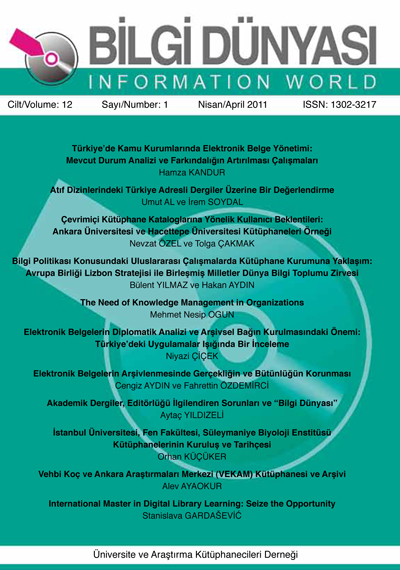Diplomatic Analysis of Electronic Records and Its Significance in Establishing Archival Bond: A Review in the Light of Applications in Turkey
DOI:
https://doi.org/10.15612/BD.2011.223Keywords:
Records typology, Electronic records diplomatics, Archival bond, Records managementAbstract
The widespread use of electronic records in Turkey is achieved only after the promulgation of a new law regarding to electronic signature. However, this positive development has also brought certain problems. It is debated whether or not these records can maintain their authenticity if they are to be preserved for extended periods. This problem is closely related with the possibility that, in case that they are delivered in an electronic environment some form features can be lost, the electronic signature might become invalid, and the record can be detached from the file it actually belongs to. One of these problems lies in thef lack of electronic records’ archival bond. Archival bond implies the determination of the nature of relationship between the creator of a record and other records that have more or less the same function. Diplomatic method is regarded as a significant means of specifying this bond. In examining the archival bond of electronic records, several factors are to be taken into consideration, including its software within which it was initiated, its time stamp, the owner of electronic signature, electronic certification service to secure the signature and also metadata elements. This study seeks to indicate the contribution of diplomatic method to archival bond to be used for the evaluation of the authenticity of electronic records.
Downloads
Published
How to Cite
Issue
Section

This work is licensed under a Creative Commons Attribution 4.0 International License.






